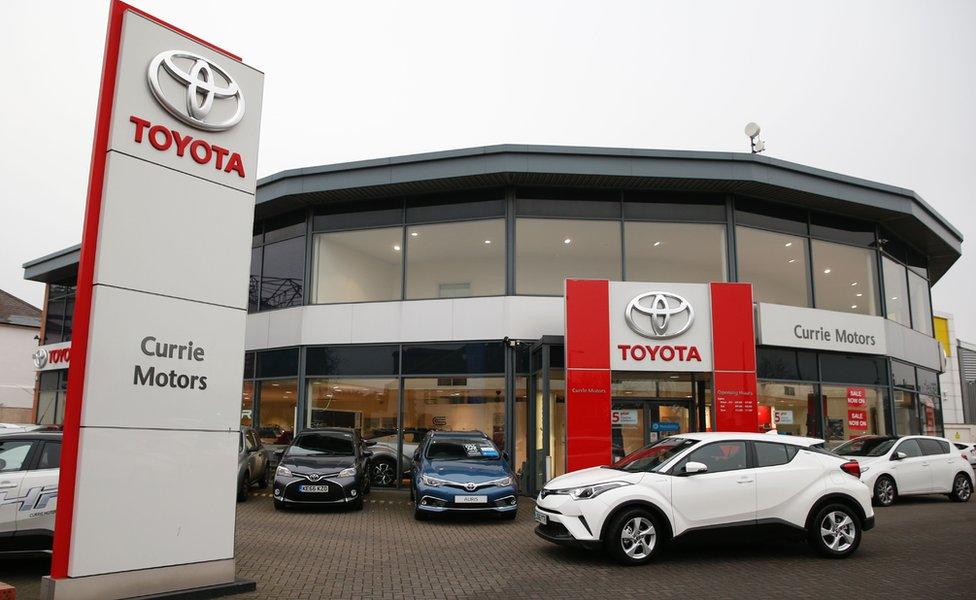Car prices 'up by 5%' since June as inflation threatens
- Published

Average car prices have risen by 5.2% since the Brexit vote in June 2016, according to industry research.
Together with the rising price of fuel and food, it is one reason why inflation could reach its highest level for two-and-a-half years when official figures are released later on Tuesday.
The City expects the UK's Consumer Prices Index (CPI) to reach 1.9% in the year to January.
It has risen steadily from -0.1% in October 2015 to 1.6% in December 2016.
According to research by What Car? magazine, prices of cars sold in the UK have risen as a result of a fall in the value of sterling, as well as fewer discounts on offer.
It said the price of some larger people-carriers had gone up by as much as 12.3%, although some other luxury cars were actually cheaper.
Fuel and food
In 2016, 86% of the cars sold in the UK were imported from abroad, according to the Society of Motor Manufacturers and Traders (SMMT).
The pound has fallen by about 10% against the euro since the end of June 2016, prompting some manufacturers to raise prices.
"We knew average prices were going up, but rather than a gradual rise, our research has shown that there has been a perfect storm of elements that has conspired to create a big bang in price hikes," said What Car? editor Steve Huntingford.
Other factors that could push up CPI inflation include:
Fuel prices. The cost of petrol and diesel rose by an average of 2p a litre in January, according to the RAC
Food. A shortage of vegetables may have pushed prices up in the shops
Air fares
The Bank of England expects inflation to continue rising towards 2.8% in 2018, before falling back to 2.4% in three years' time.